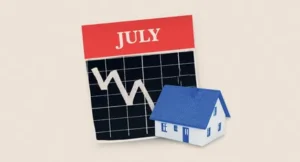Factors Affecting Your Home’s Value and How to Address Declines
Several factors influence your home’s value, and understanding them can help you mitigate potential decreases. Home value is crucial, as it affects your potential profit when selling and contributes significantly to your overall wealth. In recent years, home values have surged, boosting homeowners’ equity.
However, some markets are experiencing a shift after years of rapid price increases and high buyer demand. According to data from ATTOM, the proportion of homeowners with significant equity—defined as having a total loan balance that is less than half the home’s market value—has been decreasing. As of early 2024, about 45.8% of homeowners were considered equity-rich, marking a third consecutive quarterly decline.
Although it can be unsettling to think about your home potentially losing value, market fluctuations are a natural part of the real estate cycle. Understanding why your home might be losing value, the impact of current market conditions, and strategies to maintain or improve its value is essential.

Factors Affecting Your Home’s Value
The market value of a home is essentially what a buyer is willing to pay at a given time. An appraisal provides a snapshot of your home’s value based on various factors:
Condition and Features: Both the interior and exterior conditions, including building materials, finishes, and design features, play a significant role.
Neighborhood: Amenities and the overall appeal of the neighborhood can influence value. For instance, in New York City, proximity to public transportation or attractions can outweigh aesthetic appeal.
Market Conditions: Broader economic factors such as interest rates and housing supply also affect home values.
Should You Worry About Your Home Losing Value?
Homeowners often worry about the broader housing market’s impact on their property’s value. According to the Case-Shiller U.S. National Home Price Index, median home prices increased by an average of 11.5% annually from January 2020 to January 2024, but high interest rates and diminished buyer affordability are now affecting market dynamics.
High mortgage rates are currently limiting buyer affordability, which is impacting demand. This, combined with increased housing supply, is causing home values in some areas to stabilize or decline. For example, cities like Cape Coral and Dallas have seen a notable rise in new listings, leading to a softening in home prices.
Despite these trends, the housing market remains variable. While some areas might experience price drops, others may continue to see price growth. It’s crucial to consider the specific conditions in your local market.
Steps to Maintain or Improve Your Home’s Value
While you can’t control macroeconomic factors, you can take steps to ensure your home remains competitive:
Aim for Turnkey Appeal: Buyers increasingly prefer move-in-ready homes. Investing in updates that enhance your home’s appeal without major renovations can be beneficial.
Focus on Cosmetic Improvements: Simple updates, such as painting and decluttering, can significantly enhance a home’s presentation and perceived value.
Maintain Major Systems: Ensure that essential systems like heating, cooling, plumbing, and electrical are in good working order. These are crucial for buyer confidence.
Enhance Curb Appeal: First impressions matter. Maintain your home’s exterior, including landscaping and paint, to attract potential buyers.
Address Design Flaws: While some design flaws may affect value, acknowledging and addressing them where possible can help improve the overall appeal.
Consulting Your Real Estate Agent
If you’re considering selling, discussing your home’s realistic value with a real estate agent is crucial. They can provide insights into recent market trends and suggest improvements to enhance value. While major renovations might not always offer a return on investment, targeted updates and strategic staging can make a significant difference.
In summary, while you can’t control market conditions, focusing on key aspects of your home’s condition and appeal can help you manage and potentially improve its value.




